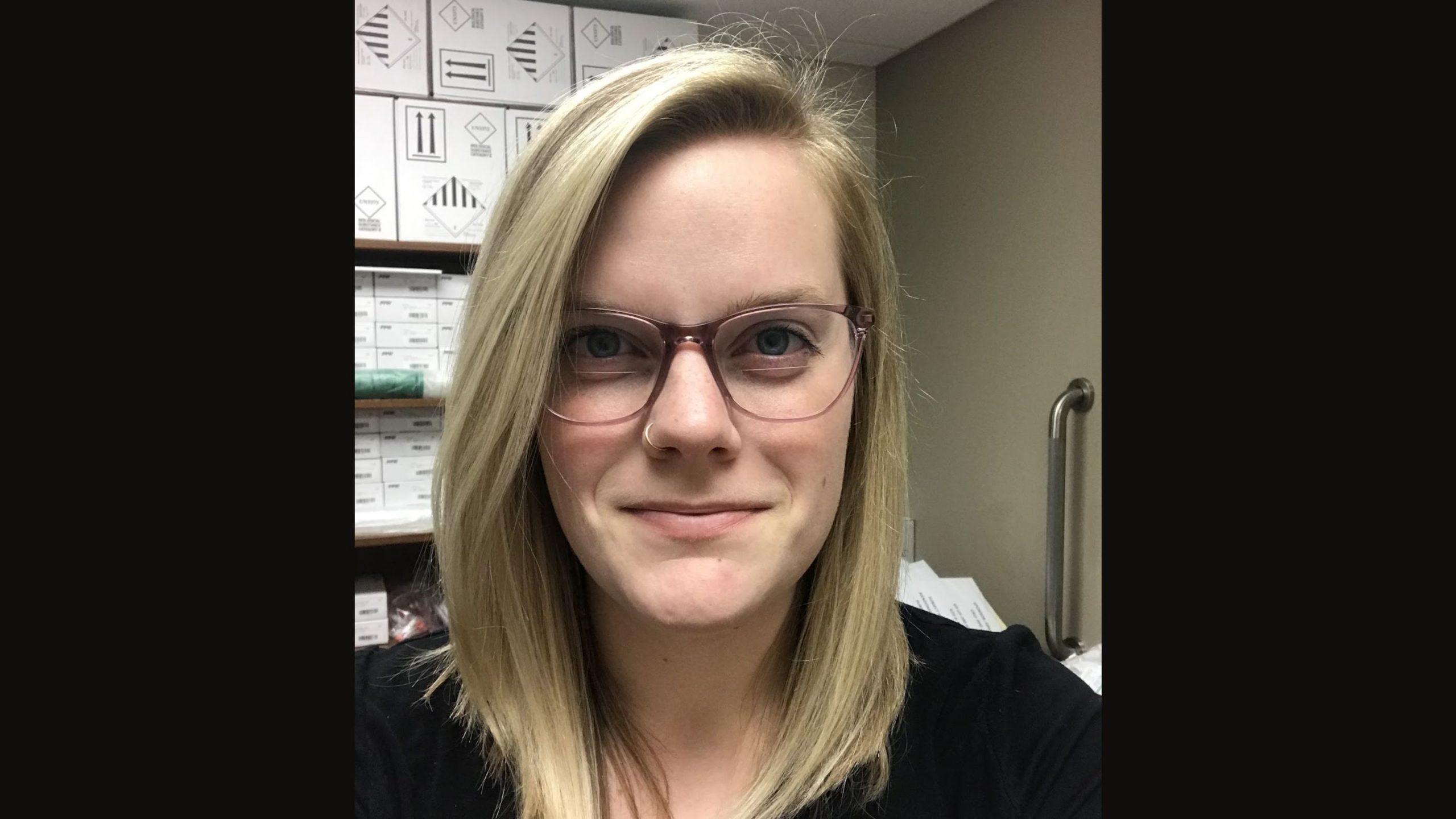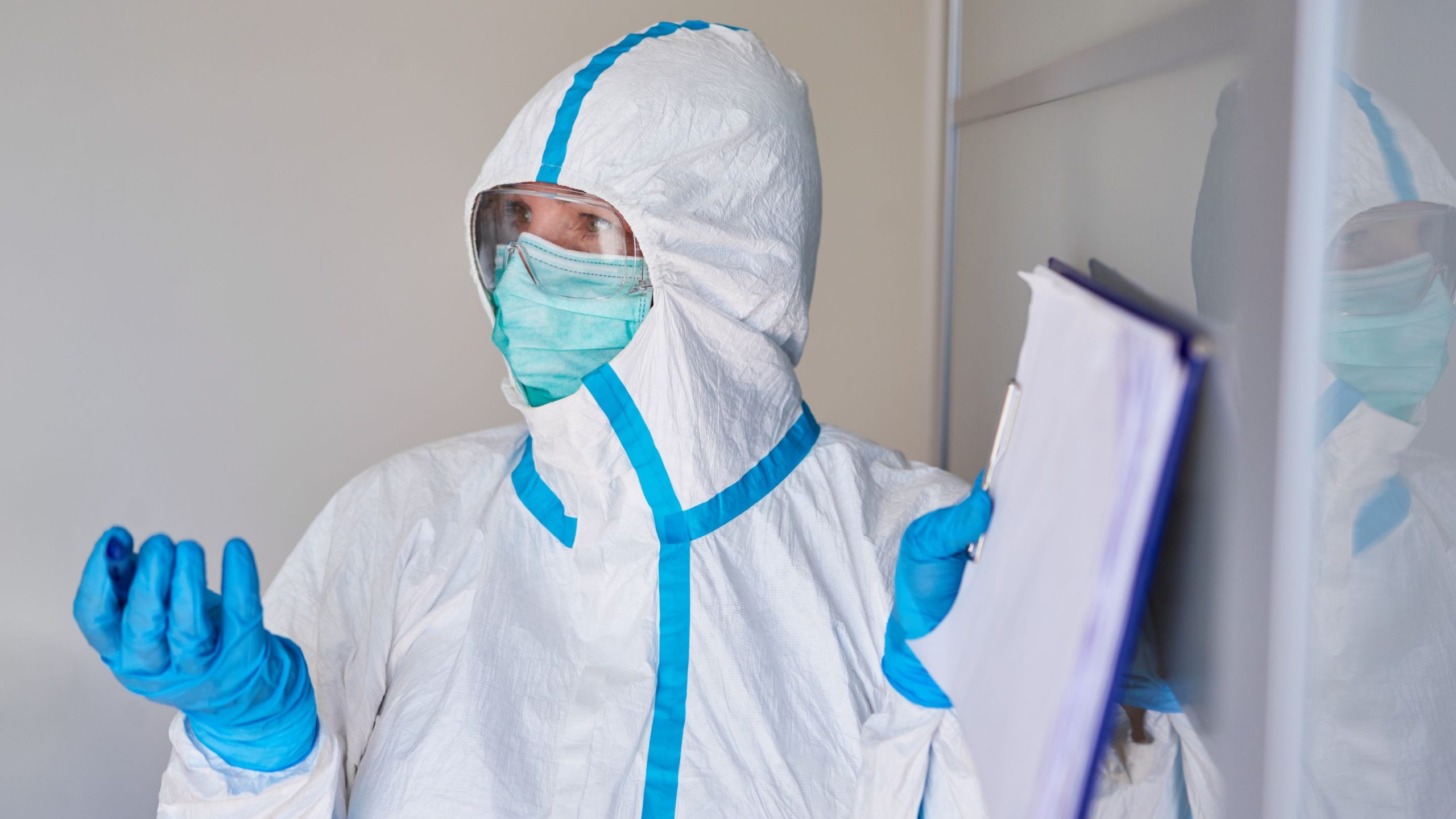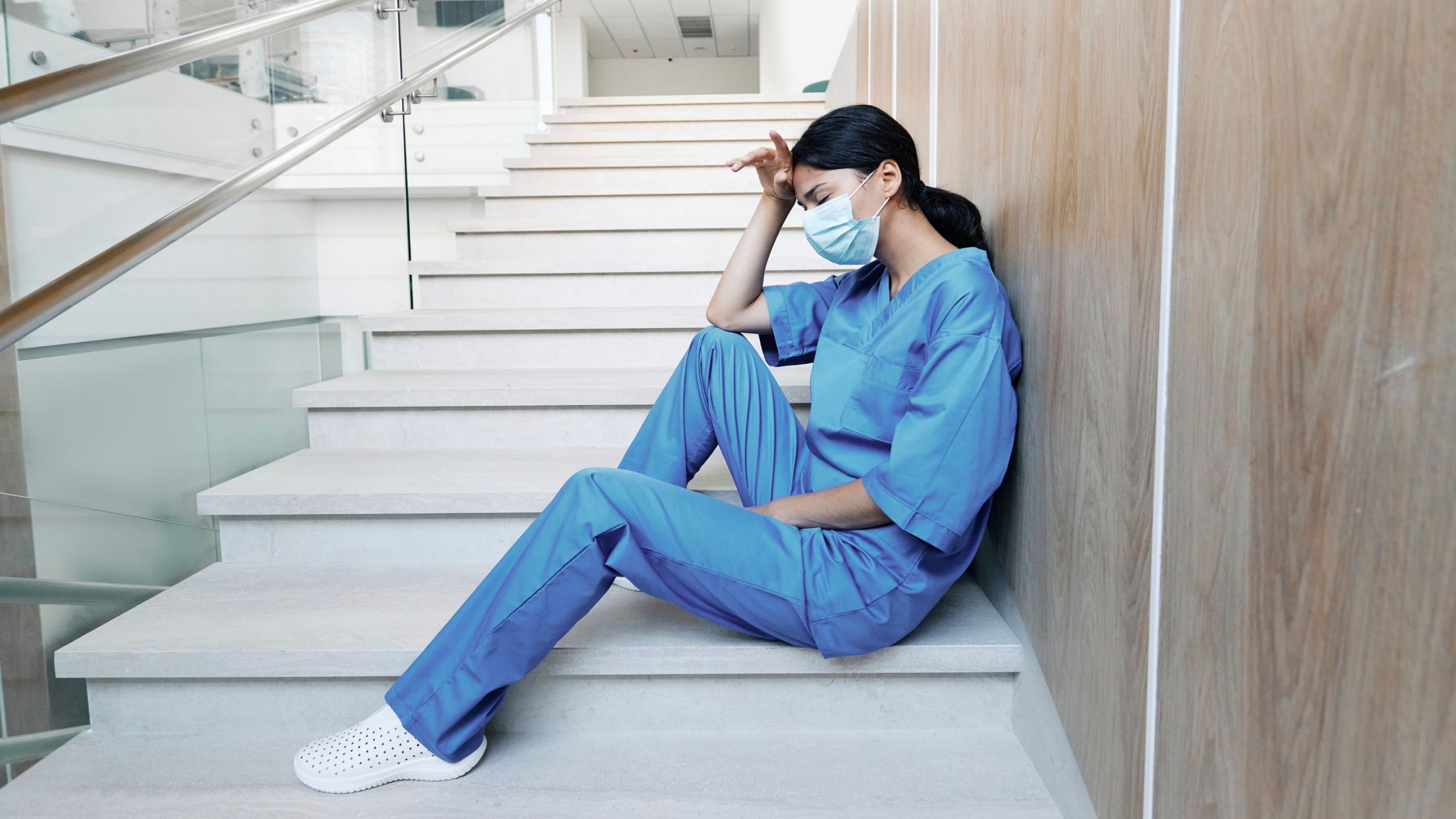
COVID-19 DRUG TRIALS

COVID-19 Drug Trial Researcher, Nurse Educator, and Nurses International (NI) Faculty Member Responds to Miriam Chickering’s, NI Founder/CEO question:
“Hannah, how are you, really? Tell us about you and about your work as a researcher in COVID-19 Drug Trials.”
On a personal level, I am overwhelmed – physically, emotionally, mentally, spiritually.
It has been 49 days since the governor of Washington declared our stay-at-home order and 49 days since I’ve left the house for anything other than work, groceries, and random runs for takeout when we couldn’t bring ourselves to cook. 49 days since my work and life got turned upside down.
On a professional level, I am fatigued but determined – fighting for patients and access to treatment.
In a single day my job in clinical research was burst open at the seams. I went from coordinating a handful of Phase II and III trials for HIV and seizure medications just in Spokane to helping coordinate a series of inpatient Phase II and III trials for COVID-19 treatment across the state. I threw myself into the trials, frantically and tirelessly working with our incredible staff to get our remdesivir, convalescent plasma, and IL-6 modulator trials off the ground in a quarter of the time we usually take to do it. I went from working during the week to clocking in 7 days a week, poring over charts, screening patients, reaching out to families, and conducting a massive data collection for the studies. Even though I haven’t set foot in the room of a COVID-19 positive patient (we do consents over the phone, and the medications are added to the MAR and part of the floor staff workflow), I feel for them and their families. We have lost patients during our trials, and even though I may not have done more than have a 20-minute phone conversation with them or their families, those losses cut deep.
I am wounded – by the words of others.
I’ve never had to defend what I do for work until now. I have worked in clinical research for several years, coordinating Phase II-IV pharmaceutical research trials. I have spent countless hours working with HIV, Parkinson’s, Alzheimer’s, and epilepsy patients, trialing medication and treatment options to see if we can provide relief and management of their symptoms and disease process. I have worked alongside doctors, nurse practitioners, and pharmaceutical companies, all set out to do right by their patients. Yes, Big Pharma can be a pain in the ass and they’ve done some genuinely suspect and shitty things in the past. We can’t paint them all with the same brush. We have a one pill once a day treatment option for HIV for the first time since the 1980s, and this one won’t trash your liver, kidneys, or bones. We’re revolutionizing the way we provide carbidopa-levodopa to Parkinson’s patients, finding ways to provide longer-term symptom management with lower doses. I’ve never had to defend the work I do until now, with mistrust and anger coming at the research world from left and right every single day. I’m not in this to help pharmaceutical companies make money. I do this day in and day out because my HIV patients need me, my Parkinson’s patients need me, my epileptic patients need me.

I am disappointed – in our country.
I am tired of the news, the internet, the conspiracy theories, the false narratives, the lies, the inability of people to take responsibility for their actions and choices. I don’t understand how our administration can stand at their podium every day and say they are doing a good job, but also withhold supplies from the federal stockpile and say that New York should have prepared better. I don’t understand how the idea that this is being perpetrated by individuals and countries in order to ruin other people is running amok and gaining steam. I don’t understand how people can think that because the hospital near them isn’t overwhelmed it means that no hospitals are overwhelmed and we’re blowing this out of proportion. I don’t understand how we can ignore everything we’ve ever learned about public health and management of a crisis and try to muscle our way through this. It breaks my heart that this pandemic has revealed the inherent and boundless selfishness of human nature and the impact that is having.
I am lonely – though not all the time.
In a single day I came face to face with all of the things I wouldn’t get to do this spring. My husband and I wouldn’t get to travel for spring break or our 5-year wedding anniversary, wouldn’t get to travel across the state for family birthdays, see my parents for their 43rd wedding anniversary, celebrate my sister-in-law’s wedding. We haven’t seen my family in person since the beginning of February, and for a massive homebody like me, that has been the hardest part of this stay-at-home order. Our community of people is spread around the world right now, and for my extroverted husband and my selectively extroverted self, quarantine has been brutal and gut-wrenching.
I am heartbroken – for my students and fellow faculty.
In a single day I stopped teaching my clinical rotations and I haven’t seen any of my students since then. Our stay-at-home order was quickly followed by all clinical rotations being cancelled, all classes switched from on-campus to Zoom, and a barrage of text messages and emails from students panicking about what they were going to do. My normal routine for wrapping up a clinical rotation was to go back over everything we’d learned, cover their senior internship, and help prepare them for graduation and taking the NCLEX. Overnight I turned into a counselor, helping calm fears about life, jobs, internships, and graduation. Thankfully, the program I teach in front loads their clinical hours, so our graduating seniors could miss their senior internship and still be able to graduate and take the NCLEX. But that hasn’t stopped them from worrying about what was going to happen to them and what they were going to have to miss out on due to the pandemic. We didn’t get to do a pinning ceremony, and I didn’t get to cry my way through their names being read and then take a huge sobbing group photo before they wander off into their next adventure in the great unknown that is life. For the first time, I didn’t get to see my students graduate, and it took 49 days for that to sink in.

And yet, somehow, I am hopeful.
For all the sleepless nights, heated conversations and arguments, hours spent with worried students and patients, there have been sweet moments of joy and relief. I finally had time to take up running again. I found an incredible local yoga studio offering classes over Zoom that lets me practice in my living room while fending off my overly enthusiastic pup. I’ve gotten to work from home part of each week, giving me more time with my husband. I suckered my family into semi-regular Zoom dates, though corralling 12 wayward people is often a challenge. My husband I started weekly physically distant dinner dates with our best friends, finding community even in this time of isolation. And like most of the country, I’ve gotten to indulge and do all of the baking I talk about doing during the semester and never quite get around to (I’m one more shot away from perfecting overnight cinnamon rolls!).
But more than that I’ve seen the ways that people have stepped up for each other. My students are having Zoom dates to study for the NCLEX and helping each other prepare for job interviews and writing cover letters. The ICU doctor I worked for spent his Easter Sunday shrouded in CAPR gear sitting in a room with a pair of COVID-19 positive patients, talking through the disease and easing their fears. When I called them last week to see how they were doing, the patient and her husband spent the call in tears, overwhelmed by the thoughtfulness of the doctor and the peace he brought them that day. I have seen hospital and clinic staff come together to troubleshoot seeing patients, easing fears, and providing relief and comfort. I have seen our community step up at the drop of a hat to support local small businesses who didn’t think they would survive being closed. Companies are diverting time and funds to making masks and ventilators, offering support where they can to hospitals in need. Our Spokane community has come together to honor every single essential worker, healthcare or otherwise, adapting business plans for physical spacing and safety with empathy and intentionality.
While I am saddened by so much that is happening in our country and world right now, I am also hopeful. In this darkness that seems to go on and on, we are seeing areas of light and grace. We are seeing both the best and worst of ourselves, and I hope the best wins out.
I am weary, but I am still hopeful.
HANNAH GUBITZ, MSN, RN, CRC
Author
Share this post
Nurses International is a non-profit entirely focused on helping nurses obtain the education and the support they need to make a difference in developing nations worldwide.
We connect colleges and institutions with experts who can take their nursing programs to the next level. We help establish new nursing programs where they’re needed most. And we eliminate the barriers that stand between students and education.
QUICK LINKS
CONTACT US
FOLLOW US
EIN: 46-4502500